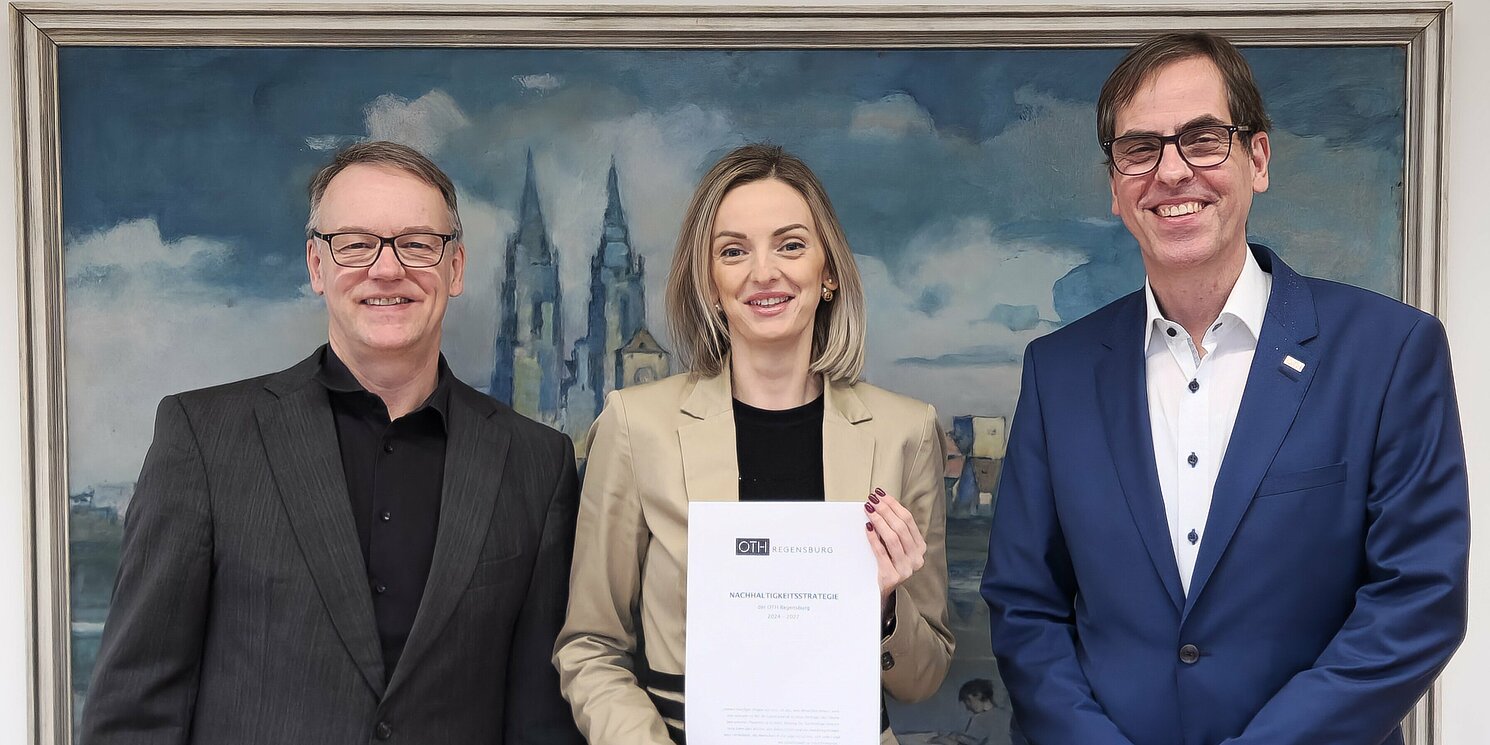‘Sustainability is one of the central goals in our university development plan and therefore an essential part of the strategic orientation of OTH Regensburg,’ says President Prof Dr Ralph Schneider. Sustainability has already been actively practised at OTH Regensburg in recent years. Now a comprehensive strategy is to ensure that the concept is implemented in all areas of the university.
From optional to compulsory: inclusion in the curricula
Prof. Dr Christoph Skornia, Vice President for Digitalisation and Sustainability, and his team are responsible for defining short, medium and long-term mobility goals and recording them in a sustainability strategy.
For Skornia, anchoring the topic in the curriculum is a particular milestone: in future, every degree programme should include sustainability as a focus in at least one compulsory subject. ‘OTH Regensburg sees itself not only as an educational institution, but also as part of society,’ says Skornia. ‘Every year, we release graduates into the labour market. By imparting values and knowledge to them, we ensure that they carry sustainability principles into business and research.’
From renewable energy to sustainability week
In addition to the development of teaching and study programmes on sustainable development, the already very successful research in the field of sustainability is to be further expanded. The university also wants to reduce its own consumption of resources and increase the generation of renewable energy on its own campus.
Various student initiatives are actively committed to sustainable development. These include, for example, the Sustainability Week and the Bicycle-Friendly University Working Group. OTH Regensburg intends to support such initiatives and projects in the future, both financially and in terms of personnel.
In addition to these examples, the sustainability strategy includes further strategic and operational goals in the five fields of action of teaching, research and transfer, governance, operations and student initiatives.
Shaping sustainability together: active participation of all university members
All interested students, teaching staff and employees were able to contribute their ideas and wishes at a workshop in February 2024. The Sustainability Office then carried out a materiality analysis and surveyed internal and external target groups. The results of the workshop and the materiality analysis form the basis for the strategy that has now been adopted.
In future, sustainability controlling will ensure that the targets set are actually achieved. An interim evaluation in the form of a sustainability report is planned for 2025 and 2026. ‘These measures will enable us to clearly identify and communicate both the successes and challenges of our sustainability strategy,’ says Stojanović-Blab.
